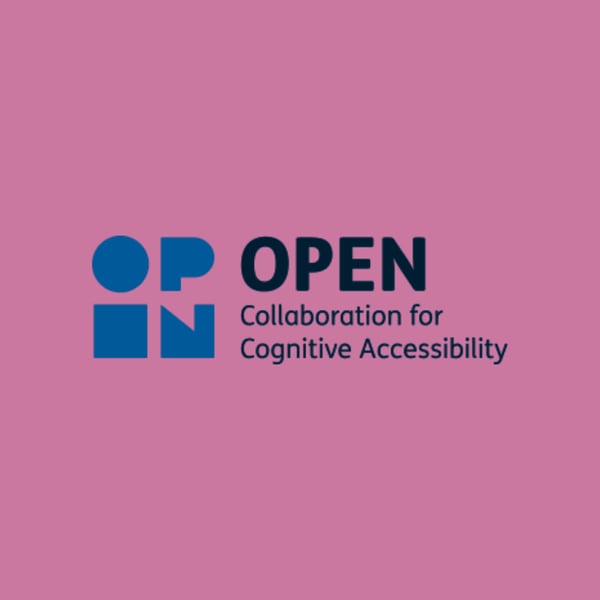The Faculty of Social Sciences is honoured to announce that Professor Virginie Cobigo has been...


The Faculty of Social Sciences is honoured to announce that Professor Virginie Cobigo has been...

Watch Episode 2 of the LIFE Research Institute’s video capsule as Dr. Virginie Cobigo and special...

In a recent study, Professors Jude Mary Cénat, Monnica Williams and their colleague Angela Haeny...

Professor Stephen Brown, professor and researcher at the University of Ottawa's Faculty of Social...
Towards a more inclusive world: Open puts neuro-inclusion into action
Open — Collaboration for Cognitive Accessibility is a social enterprise whose mission is to build a world where people of all cognitive abilities can meet their full potential. It’s the brainchild of Virginie Cobigo, an associate professor of psychology in the Faculty of Social Sciences. Centrally located in the Faculty, it serves as a clearinghouse for expertise on cognitive accessibility. Open connects researchers with persons living with cognitive disabilities, to co-create inclusive solutions by and for the latter.
Open serves as a bridge between persons living with cognitive disabilities and businesses, public sector organizations and researchers focused on cognitive accessibility. The new enterprise offers a range of services, including accessibility testing of technologies, websites and built environments, and training on cognitive accessibility. At the same time, Open helps researchers develop and implement genuinely inclusive research and assessment methodologies.
Thanks to its innovative approach, Open has gained the trust of many Canadian and international businesses. “We’re working with Open to develop a cognitively accessible medication management app. The business has provided us with invaluable expertise on cognitive disabilities and accessibility, while making sure we receive direct feedback from people living with these challenges,” says Dinis Cabral, CEO of JLG Health Solutions. Other partners, such as the Bank of Canada and Deloitte Canada, have also sought out Open’s expertise to overcome their cognitive accessibility challenges.
One key element in Open’s approach is directly including persons with cognitive disabilities in its research and development. Today, between 10 and 25 percent of adults in Canada live with a cognitive handicap, along with millions more around the world. Seeing them as a genuine resource helps create a more inclusive world for all. With this in mind, Open employs over 30 advisers, who bring their own lived experience to inform the creation of numerous innovative solutions.
The testimonials of Open’s advisers show the profound impact of this collaborative approach. “I’m paid to teach and they — the researchers — are paid to learn,” says Dominic, a cognitive accessibility adviser. This direct involvement allows the people involved to become key change agents, not just research subjects.
Mary Beth is an Open adviser who received a diagnosis of probable frontotemporal dementia. Her story highlights the importance of including persons living with cognitive disability in research, so that solutions developed actually meet their needs. She herself is a perfect example of Open’s impact: her comments to Open on instruction clarity and articulation speed of a voice-based payment system helped make it more accessible. Without her contribution, the system could have been frustrating and inaccessible for those living with cognitive disabilities.
Another adviser, Véronique, speaks to the importance of creating an inclusive, comfortable research environment. She’s happy with the flexibility and support the Open research team offers, which has allowed her to take part at her own pace and to speak up.
Thanks to its collaborative, innovative approach and tireless commitment to inclusion, Open, with visionary leader Cobigo, is helping bring lasting change to the world of cognitive accessibility. By giving a voice to persons living with cognitive disabilities and putting them at the centre of the innovation process, Open is paving the way to a more equitable, inclusive future for all.
Open's development is supported by an important partnership between the Azrieli Foundation and the University of Ottawa. This partnership aims to increase research capacity in cognitive accessibility and promote inclusive research with people with cognitive disabilities.
The Azrieli Foundation's support goes beyond the Open project. It contributes to various major objectives of the University, including research excellence, the development of community partnerships, the dissemination of knowledge and the enrichment of the experience of students and trainees. This collaboration is perfectly aligned with the University's EDI action plan for research, reinforcing its commitment to inclusive and diversified research.
Learn more about Professor Cobigo’s work on our Collabzium. Explore the current strides being made by Faculty of Social Sciences research and discover how our researchers are making a practical contribution to improving our lives.
By Collabzium
Also Read